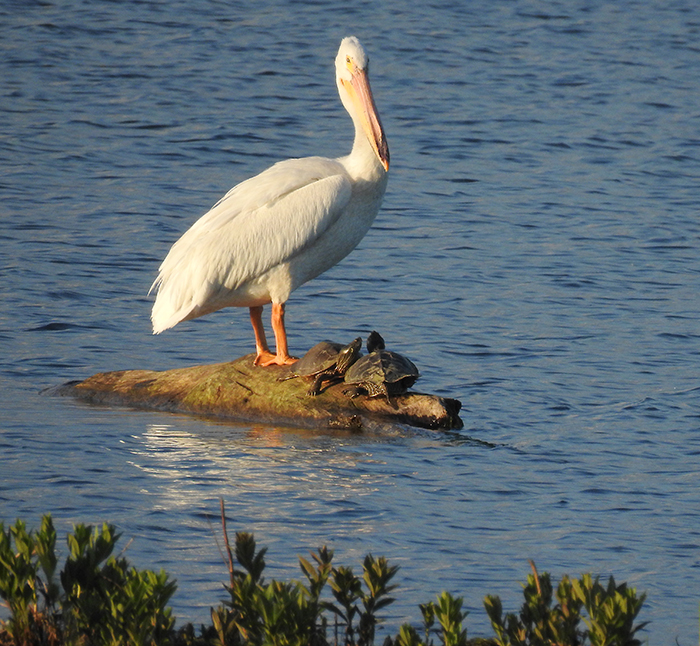
By Pam Wright
Local Journalism Initiative Reporter
People who thought they might be hallucinating when they spotted a pelican near Erieau last week needn’t worry.
It was the real thing.
The unusual sighting of the American white pelican was captured in a photo by local naturalist Ken Bell and shared on social media.
The image had birders from far and wide flocking to the lakeshore to see if they could see the pelican in the flesh.
Or should we say “feather.”
Bell said it was the first time he’s observed a pelican near Erieau, but it doesn’t surprise him as the birds are extending their range.
The same day, Bell said he saw a tricoloured heron — another rare bird not normally found in this area.
But considering the area’s ecology, Bell said it makes sense.
“Rondeau Bay is a great piece of real estate for birds,” Bell acknowledged.
An accomplished birder since 1967, Paul Pratt of Wheatley managed to get down to see the pelican as well.
Pratt, who is second in Canada for the number of observed species on the popular eBird app, said seeing a pelican in Chatham-Kent is a surprise.
“You just don’t expect that bird to be there,” Pratt said, but added the species is on the move.
A small colony is located near Pelee Island in the western basin of Lake Erie, he explained.
However, it’s not something you expect to see here. Pratt said most local people have only seen the bird in Florida or in the Gulf of Mexico.
And while American white pelicans do winter down south, the large water bird is a familiar site in the prairie provinces with its range stretching all the way to the Northwest Territories.
But showing up in Southwestern Ontario is fairly new.
Pratt said the pelican population expansion is indicative that measures to clean up pollution in the Great Lakes and ban DDT have been successful.
“We’ve cleaned up the water,” Pratt noted, adding other species pushed to the brink – such as eagles and ospreys – are back.
“It’s nice to get a good news story once in a while amongst all the bad news,” Pratt concluded.
“This is great news and means our actions paid off.”





